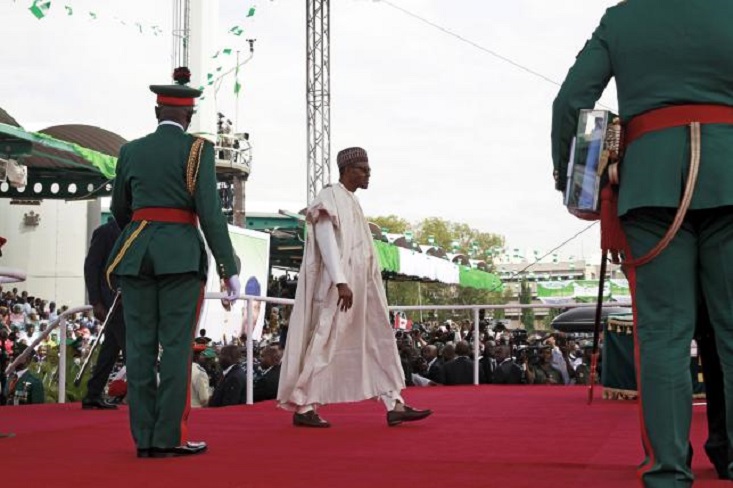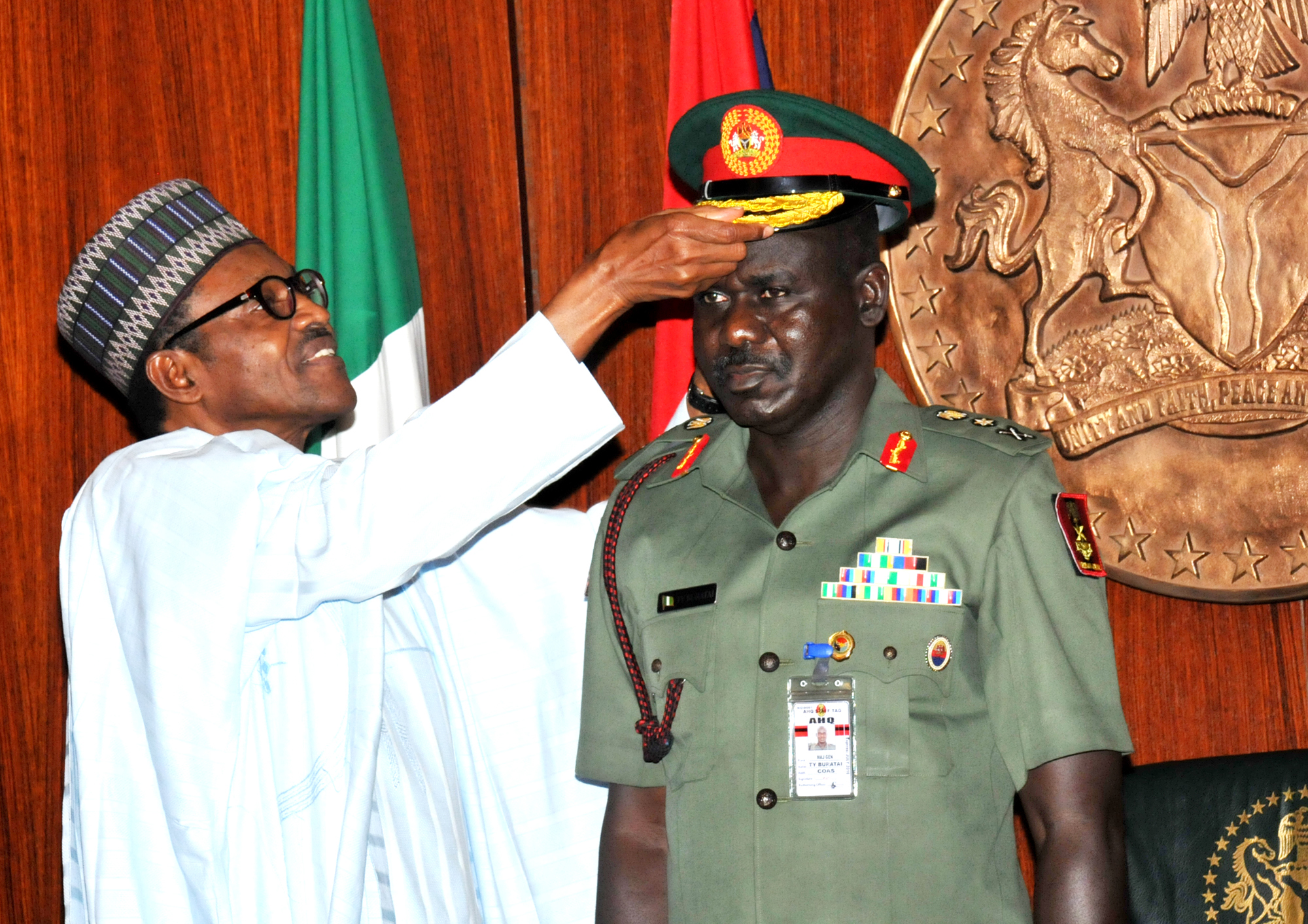In 2009, during a state visit to Ghana; one of the few countries on the continent credited with a vibrant democracy, President Barack Obama in exhorting African leaders famously declared that “Africa needs strong institutions not strong men.” That statement is in recognition of the fact that strong, independent institutions are fundamentally indispensable for a nation to succeed. Institutions are the building blocks of every society. When strong and independent, they serve the needs of the citizenry—ensure that the rule of law, administration and other essentials of the state are effectively deployed in the ultimate interest of all citizens irrespective of political leadership. Obama’s statement was thus a rebuke to a continent dotted with leaders who most often become dictatorial tyrants at whose behest every institution of state functioned, with the attendant cronyism, patronage and nepotism often suffused with ethno-religious suspicion, hate and exclusion.
Corruption being intricately interwoven with dictatorship and its excesses thrives in full view while civil society all but disappears. The result: weakened and inefficient institutions incapable of providing basic social services while repression and abridgement of civil rights, poverty, dysfunctional infrastructure; ethno-religious conflicts and systemic state failure become the order of the day. This much has been Africa’s story since the colonialists departed the continent. To make matters worse, such states having invested so much on consolidating the state and all its institutions around the cult of one leader, creates for themselves problems of succession as none might be able to fit into the carefully cultivated cult and authority of the erstwhile leader. This colossal misadventure has been Africa’s greatest undoing, leaving in its wake the poorest, unstable, most undeveloped and most conflict prone continent in the world with the added attribute of having the highest concentration of corrupt nations and failed states.
Not surprisingly, the area more specifically identified with this crisis is now known with the negatively connoted acronym of “Sub-Saharan Africa” an acronym that implicitly refers to parts of Africa with all the implied negative innuendos. Like elsewhere in Africa, a new theatre of the absurd has recently opened in Nigeria, where much more than ever before, there is now a slow but steady emasculation of state institutions which now increasingly serve only the interests of Buhari, his appointees and party. Nowhere is this more evident than in the handling of the saga of General Buratai’s Dubai properties. Suddenly, institutions of state that have been very active in hounding and prosecuting opposition party members and other such officials of the previous administration are either silent or active in defending Buratai. His mouthpiece—the army spokesman informed a bewildered public the multi-million dollar Dubai properties were bought with personal savings.
How much has Buratai earned his entire career to be able to save $1.5 million and buy properties in Dubai? This is besides properties he owns in Nigeria and others yet to be discovered that might be in his wife or family member’s name. As a General at the peak of his career and salary scale he earns less than $4000 monthly. He of course only became a General recently before which he earned much less. How then did he save such humongous amounts? It has also been reported that Buratai owns multi billion naira investments in estates and farms against the rules and ethics of his profession. Pray how did a military officer raise so much money to become an active investor and businessman while in public service with his salary? The compromised EFCC that should seek answers to these critical questions has remained conveniently silent while the equally compromised army, minister of defence and federal government have curiously been falling over themselves to defend the unexplained sleaze and financial bonanza of General Buratai.
In the Buratai saga, we have an awkward situation where state institutions that are supposed to be impartial are reduced to defending the personal financial abracadabra of a suspected offender because he is an appointee of Buhari. Incidentally, these are the same institutions that recently retired some officers on mere allegations of being pro-PDP or being corrupt. If same institutions that acted so severely on mere allegations that were never proven when it concerned officers outside the Buhari circle could become so complicit in defending a Buhari appointee in issues of suspected sleaze; it underscores the hypocrisy/double standards of the so called corruption war and how much state institutions have been bastardised and reduced to partisanship in the service of Buhari and the APC. In this journey of infamy, it is remarkable how the EFCC—created to dispassionately fight corruption has been a key player and ready culprit. Since notorious for exclusively persecuting opposition party members and critics of the administration, the EFCC has proven time and again that it exclusively serves the interest of Buhari and the APC.
While none of the mountains of corruption petitions against APC members many of whom were formerly in the PDP; some as former governors have ever been acted on, the EFCC has been busy hounding opposition party members and any who dared criticise the government. The issue of election funding has been top on their menu as a veritable weapon but only for the PDP, while the APC who raised election funds through same dubious means are conveniently unquestionable and untouchable. Any doubts that existed as to the brazen partisanship of the EFCC was finally erased when few weeks ago they took the unprecedented step of freezing the accounts of governor Fayose; a serving governor and staunch critic of the Buhari administration in violation of his constitutional immunity. This audacious repudiation of the constitutional immunity of a governor who happens to be a senior opposition figure and ardent critic of the administration was not a coincidence, it was a well orchestrated plot to intimidate and silence him. It was indeed a step too far that finally exposed whose interest the EFCC serves.
Coming against the backdrop of an earlier invasion and arrest of scores of Ekiti state assembly members by the DSS in March; for same ostensible reason of intimidating and silencing governor Fayose, it is obvious institutions of state are now mainly deployed to serve the political interests of Buhari and his henchmen. Never before in the history of this nation, has state institutions been so bastardised and subjected to the services of a president, more so in a democracy. Not only does these abominable incidents expose the falsehood of the so called corruption war, it portends grave danger for the short and long term that practically all institutions of state: ie the police, army, EFCC, INEC, DSS, Judiciary amongst others are increasingly subverted into serving the partisan interests of the president and his party. Nothing brings about state failure and repression as much as state institutions that are compromised and weakened. As Obama said, Nigeria needs strong institutions not strong men. Its early days yet, but except Nigerians wake up to this looming danger, the nation will sure plunge into greater calamity in the days and years ahead.
–
Lawrence Chinedu Nwobu
Email: lawrencenwobu@gmail.com








